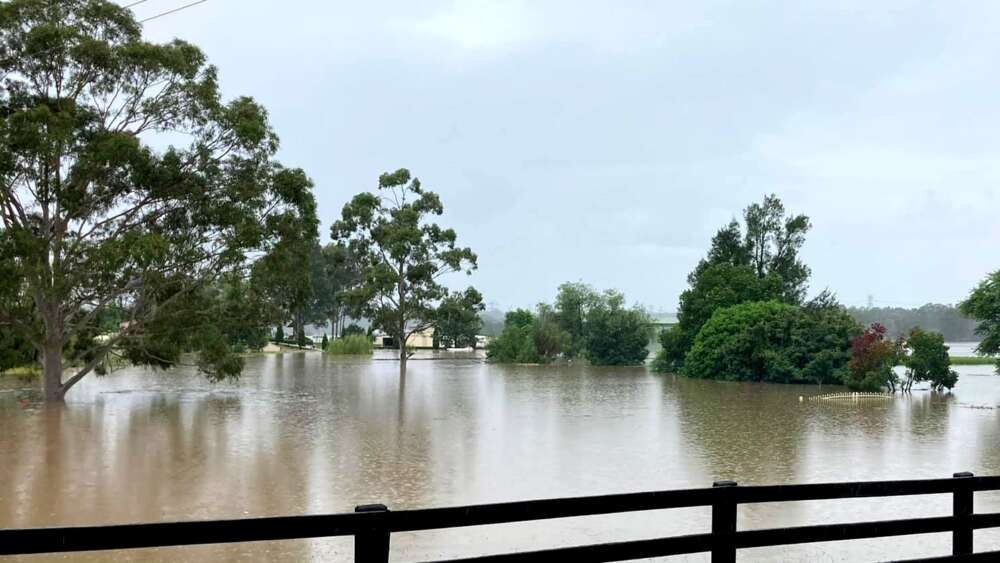lament (verb): to bemoan and express grief or sorrow in a passionate, physical way; a vital prayer to petition God to help deliver from distress, suffering and pain
resilience (noun): the ability to recover quickly from difficulties; the process of adapting well in the face of adversity, trauma, tragedy, threats or significant stress
When the rains began to fall across Australia a few weeks ago, I braced myself. I knew roads would close and people would be evacuated from their homes. Then the floods came, lives were lost and difficult situations were made worse because of the damage done. I think it’s fair to say we all felt the collective pain and fear that come with such disasters.
Or to use a word not popular in our contemporary culture: we lamented.
Resilience is how we’re wired as humans. We go looking for the good, rebuilding life after great sorrow and lament.
Yet, as was the case after other floods – and droughts and bushfires as well as a global pandemic – we looked for ways to help. To care for those affected. To grab a piece of hope and move forward with an attribute gaining traction today: resilience.
Resilience is how we’re wired as humans. We go looking for the good, rebuilding life after great sorrow and lament. As image-bearers of the Creator God, we want to make life better for others.
In 1959, a group of Baptist volunteers saw the horrific impact of World War II, the children left as orphans overseas and the poverty that emerged across many parts of the globe. They grieved the damage done and felt the pain of families wondering if they’d ever recover.
They lamented. They cried out to God for mercy and for guidance.
This group of volunteers, as followers of Jesus, then went looking for a response and planted a seed that has now grown into Baptist World Aid Australia. Those early visionaries pleaded with God for help – and a plan – and soon they were providing resources for global Christian partners, care for children, emergency relief for disasters and agricultural workshops so families could grow their own food.
… as Christians, we know it is not supposed to be this way. God wants a better world.
Now in 2021, with so much to lament in the world – the horrific fires in refugee camps in Bangladesh, famine in Yemen, political violence in Myanmar, mass shootings in the U.S., and the ongoing impact of COVID across already vulnerable nations like PNG – it could be easy to be discouraged. To grieve and wonder what to do in response to the countless scenes of injustice we read in the news daily. Sometimes we simply look away.
But as Christians, we know it is not supposed to be this way. God wants a better world.
So, as God’s people, we pray and look for ways to address these issues. We join an army of relief and development agencies doing good work around the globe, responding to economic injustice, horrific disasters and advocating for those on the margins.
And like our founders, we look for opportunities to address the whole person. That means we assist in savings groups, fish farming, hygiene workshops and countless other ways to reflect our love for Jesus and his care for those who don’t have the provisions we often take for granted in Australia.
But it also means we confront the systems that need changing, those structures that keep people in poverty, especially as we seek to empower our fellow image-bearers to move toward the fullness of life God intends.
a Risen Lord provides new strength, permanent hope, and ongoing purpose. He turned their lament into resilience.
Of course, we still lament the sorrows. We grieve the horrific challenges in already fragile regions now made worse from COVID. We ask God to give us strength and resilience, a resilience so many of the world’s poor model to us. And then we set about joining God in his work of practical care to right these wrongs.
It’s an Easter message we try to proclaim all year long. At the core of his ministry, Jesus showed extraordinary compassion, caring for the single suffering person whilst also challenging the power and actions that perpetuated such marginalisation. He built a movement of followers who would do the same. And this took him to the cross. Just as the disciples lamented and grieved the unjust murder of their leader, we, too, look to the cross of Jesus in sorrow. Our hearts are broken at the injustice, knowing our own sins and indifference toward this broken world drove him there.
Yet, like the disciples experienced three days later, a Risen Lord provides new strength, permanent hope, and ongoing purpose. He turned their lament into resilience. And great joy – a process Christians in development work cling to.
After all, Jesus, the Man of Sorrows, chose to take on the world’s deep sadness and alienation when he hung on the cross that first Good Friday. And in his final breaths he lamented – loudly – to his Father.
This same Jesus then breathed new hope and death-defying resilience back into his followers three days later. He sent out his followers, with renewed courage and hope, into the world: to reflect his lament, his care, his compassion, and yes, his resilience.

John Hickey, CEO of Baptist World Aid Australia
He still does. And it is our joy to join him in working toward the audacious vision of a world without poverty.
John Hickey has been CEO of Baptist World Aid Australia since 2010. John also serves as a vice president of the Baptist World Alliance for 2020-2025 and is chair of the Baptist World Alliance Forum for Aid and Development (BFAD), which he helped establish in 2015. He is also on the Board of the Integral Alliance (a global group of 22 faith-based agencies collaborating in disaster management), the National Council of Australian Baptist Ministries and Micah Australia.
Email This Story
Why not send this to a friend?


